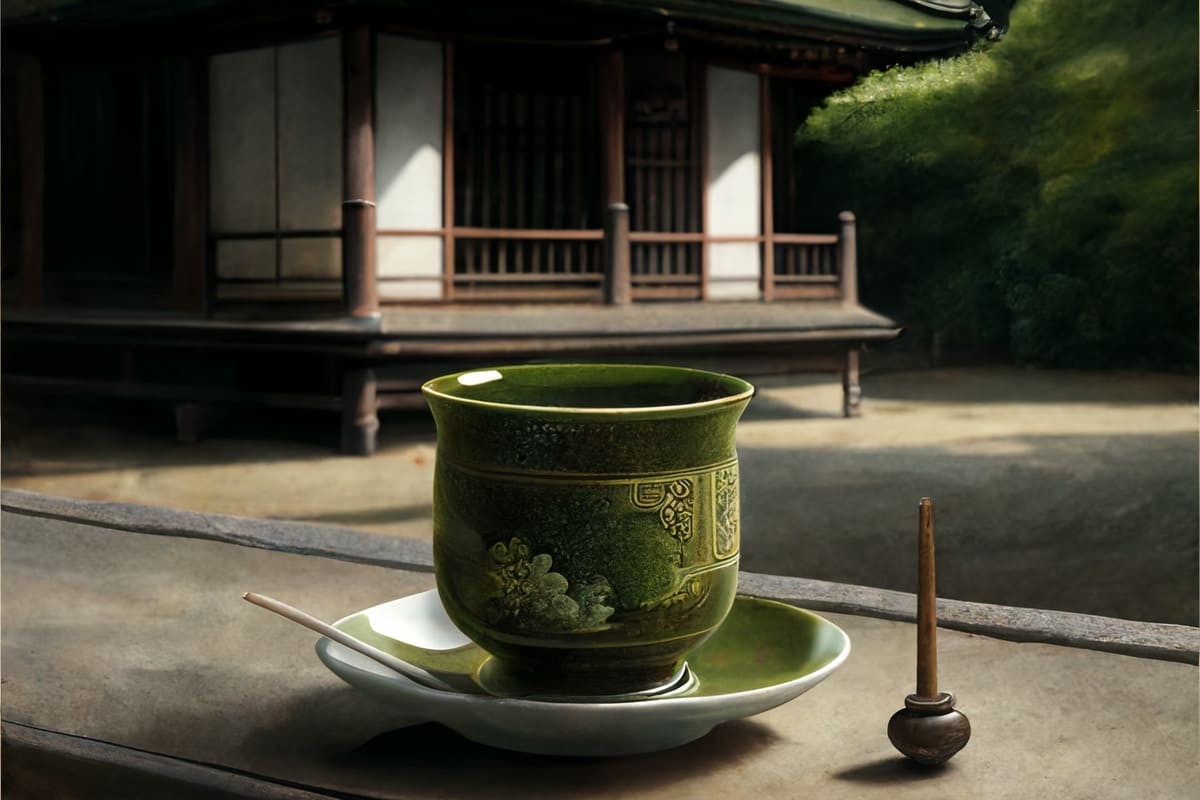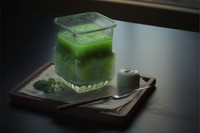What are the side effects of matcha and caffeine?
The amount of caffeine in a cup of matcha tea is 64 mg, which is lower than the amount of caffeine in a 10g cup of ground coffee, which is 60 mg. It is advised to stop drinking matcha around 4pm to avoid sleep disturbances. Too much caffeine can lead to side effects such as sleep disturbances, palpitations, irritability, nervousness, and anxiety. Even though theine and caffeine are the same molecules, drinking 1 to 3 cups of matcha tea per day is perfectly safe for those who do not have any caffeine sensitivities.

Table of content.
How much caffeine does Matcha contain?
It is important to recognize that theine and caffeine are the same molecule, yet they affect the body in different ways. When consumed in coffee, theine is immediately "bioavailable" and is released into the bloodstream within 2-3 hours. In contrast, theine from matcha tea is slower to be assimilated as it is delayed by tannins, and is released into the bloodstream over 6-8 hours in a more even manner.
This is why coffee is often referred to as an excitant as there is a sudden surge of intensity, while theine from matcha is more of a stimulating drink.
Moreover, different people may have varied reactions to theine. Regarding the amount of caffeine in matcha, it is just as concentrated as coffee. As 1g of matcha is equivalent to 32mg of caffeine, a cup of 80ml contains 64mg of caffeine, while the same amount of coffee contains approximately 42mg.
Does matcha prevent from sleeping?
It is suggested to avoid having a cup of matcha tea past 4 p.m. as it contains the same amount of caffeine as coffee. The theine in the tea is gradually released into the body over 6 to 8 hours, so it is beneficial to cut off consumption several hours before bed in order to achieve a good sleep.
What are the possible side effects ?
We are all sensitive to caffeine to different degrees, so it is important to pay attention to your own body. Matcha tea still contains caffeine and if consumed in excess, it can lead to various issues such as health problems, insomnia, heart palpitations, nervousness, irritability, and anxiety. To ensure good health and sleep quality, try to stay within the daily recommended caffeine intake of 200 mg. Avoid consuming caffeine close to bedtime for optimal results.
What are the side effects of matcha tea?
Excessive consumption of matcha tea can cause sleep disorders, palpitations, nervousness, irritability and anxiety because of the caffeine it contains.
Is matcha tea dangerous?
No, matcha itself is not dangerous, especially if it comes from a safe source because of radioactivity and heavy metals. On the other hand, theine consumed in too large quantities can cause disorders.
Can matcha tea cause constipation?
No, consuming matcha tea promotes a better intestinal flora. By regulating intestinal fermentation, matcha tea facilitates digestion both after meals and on a daily basis to ease intestinal transit thanks to the fact that it is rich in dietary fiber.
Does matcha tea prevent from sleeping?
Yes, a cup of matcha contains just as much caffeine as a cup of coffee. Avoid consuming it after 4 pm to maintain a good quality of sleep. See also the article When to drink matcha tea?
Is matcha tea a stimulant?
No, the assimilation of caffeine associated with tannins is delayed by the body. It is therefore released into the bloodstream evenly over a period of 6 to 8 hours. There is no peak in intensity as with coffee.




